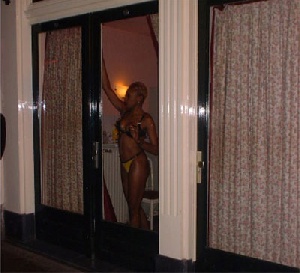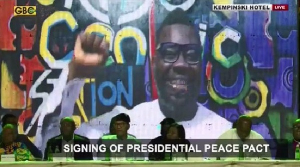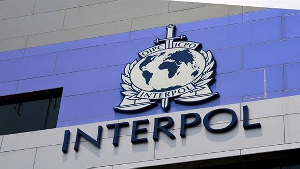... NGO warns ahead of CAN 2008
The adage that sex business thrives well in localities that host major sporting events like the American Golf tournament, Rugby World Cup, Germany 2006 and the upcoming Ghana 2008 will be put to further test next January in Ghana.
No matter the venue, sex workers have always made their presence felt and have always have willing clients but they are more prominent at venues where football tournaments are held.
For example during last year’s World Cup in Germany, sex workers were on hand to offer badly sorted services to sex hungry football fans from across the world.
One of the known clubs Artemis Sauna, located in the plush environs of Berlin was a common attraction to fans who wanted more than football. Known for its luxurious stature in terms of clientele base and services, patrons got exactly what they wanted; sex.
Majority of the service providers, according to reports, were either poor or vulnerable young women brought from Eastern Europe by sex agents, who normally capitalised on their on their vulnerability.
The argument put forward by those involved in the sex trade is that sex and football are bedfellows, because they are interlinked. This is however disputed by most anti-sex worker activists who continue to condemn the practice as dehumanising to womanhood.
Ghana, host of the next continental football tournament already has spots in abundance where visiting sex hungry football fans desiring to have more than just football would get what they want.
The Kwame Nkrumah circle is a known hang out for commercial sex workers most of whom display business cards with their phone numbers on them, willing to offer their services to a clientele that is ready to buy.
The place may not be as exotic and expensive like Artemis Sauna in Berlin but can still offer the same service that Artemis did offer during the World Cup.
Activists have already begun to sound the alarm bells of potential sex trafficking of vulnerable women and young girls across the borders to the match venues, to be used as commodities at the pleasure of those willing to do match more than watching their various countries on the pitch.
Tatiana Kotlyarenko is the Executive Director of Enslavement Prevention Alliance, West Africa. Her organisation is leading the crusade to ensure that the practice is halted especially in this tournament.
“It’s a fact that during an international sporting event human trafficking occurs there is a strong demand for women and children for the purposes of sexual exploitation.”
Ms. Kotlyarenko told the dailyEXPRESS that the security agencies need to put in strong measures to ensure that the tournament does not offer an incentive for illegal human trafficking.
“Awareness campaigns must be effective to ensure that those people who are coming here for the purpose of purchasing women for sexual intercourse is against the law.”
According to her, preparations are underway to train the police and immigration officials at the country’s borders to ensure that potential human traffickers are identified and arrested before they could carry out their nefarious activities.
Ms. Kotlyarenko was however quick to add that her on-going campaign is not about criminalising prostitution, but rather “those who create the demand for sexual services.”
She mentioned Sweden as a text case where the demand for sexual intercourse has been made so difficult because the practice opens up women for exploitation.
Tatiana Kotlyarenko cited the northern part of Ghana as one area where potential sex trafficking might happen because of the poverty level which has been compounded by the recent floods.
For women activists like Tatiana their message is simple; “buying sex is not football. It is sexual exploitation in which women are physically and psychologically harmed, and women’s bodies are treated as commodities to be bought and sold.”
Soccer News of Tuesday, 4 December 2007
Source: story by frank addo (frank.addo@dailyexpressonline.com )

















